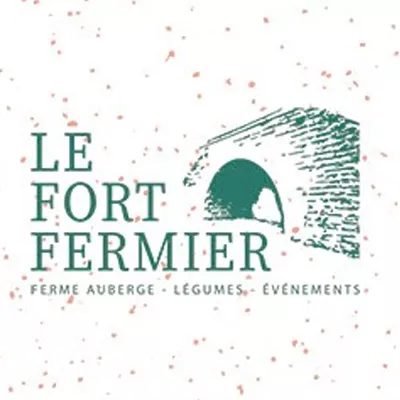General information
RDP Priority
- P6. Social inclusion and local development
RDP Focus Area
- 6B: Local development
RDP Measure
- M19: LEADER/CLLD
Summary
The Montlandon Fort is a historical site in the Pays de Langres, a rural area facing demographic decline. Four young people decided to turn the abandoned fort into an organic farm and an inn that also hosts events and provides accommodation to visitors. Much more than an economic project, it is a life project for two young couples who decided to settle in a rural area and contribute to its revitalisation by promoting its historical, natural and agricultural heritage.
Results
The farm-inn opened in July 2022. Within 10 days, it served more than 500 meals which were cooked using locally produced organic products - most of which were produced at the Fort.
The project has successfully involved a wide range of local stakeholders including producers, local authorities and artists.

Promoter
SCEA Farming Fort
Funding
Total budget 33 853.39 (EUR)
EAFRD 21 666.28 (EUR)
National/Regional 5 416.57 (EUR)
Private 6 770.54 (EUR)
Ressources
Documents
A farm-inn as a tool for territorial revitalisation
(PDF – 1.89 Mo)
Context
The Montlandon Fort was built in 1885 as part of the fortifications surrounding the historical town/fortress of Langres, north-eastern France. The Montlandon Fort, which comprises of 4 000 m2 of buildings and 8.3 hectares of land, had been used for military purposes until the Second World War, after which it was sold to private individuals. In 1992, it was bought by a couple who established an educational farm, micro-dairy, and tourist accommodation on the site; naming it the ‘Farm Fort’. Since the couple’s retirement more than 10 years ago, the fort had remained unused.
In 2020, four long-time friends, each with their own skills and diverse backgrounds, decided to buy the fort and renovate it. These were Lucie Boileau (33 years old) who had worked in catering for about 10 years and would become the chef of the farm-inn; Thibaut Del Giudice (31 years old) who is a maintenance technician and organic farmer-in-training; Maïlys Horiot (31 years old), an environmental economist and sophrology practitioner who is in charge of visitor welcome and promotion; and Valentin Pommier (31 years old) who is the founder and co-manager of an agro-ecology and biodiversity consultancy SME. He is responsible for the administrative management and strategy of the business that the four friends have established in order to run the farm and inn, and he is also receiving training in organic vegetable and poultry farming.
Objectives
The aim of this project was to turn an abandoned historical fort into a point of economic, social and cultural activity.
Activities
In 2021 and 2022, the four entrepreneurs used LEADER financing to establish their business. After settling in the fort and refining their business plan, they were able to launch the two core aspects of the fort’s activity: the production of organic fruit and vegetables, and the opening of the inn, for food, drink and the hosting of events.
By 2025, the Farming Fort will expand its offer by providing overnight accommodation for visitors and by growing at least fifty different varieties of organic vegetables. By this point, they also aim to have planted some 2 000 shrubs, 270 fruit trees and 200 non-fruit trees.
Main results
The farm-inn opened in July 2022. Within the first 10 days, it had served more than 500 meals which were cooked using locally produced organic products (most of which were produced at the Fort).
Organic fruit and vegetable production started at the beginning of 2022 and will keep increasing until it covers 2.5 hectares. The farm also aims to breed 1 000 chickens per year.
The project successfully involved a wide range of local stakeholders, including local producers who supply products to the Farming Fort Inn and who also sell their produce at the Fort’s farmer’s market. Local authorities play a technical role, as they support various events and supervise the implementation of projects organised by the Farming Fort. They also play a strategic role by ensuring that the Fort’s activities are aligned with the region’s policies for local development. The Fort also involves local artists, who showcase their work during thematic events.
Key lessons
This project draws on a sustainable development approach to respond to territorial development needs by setting up short supply chains, fostering organic farming, preventing food waste, using local biomaterials, and collaborating with local actors.
